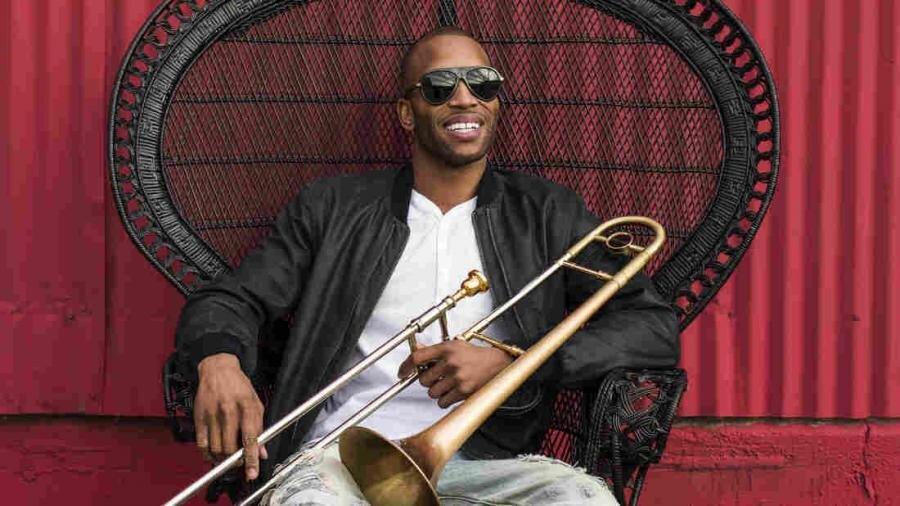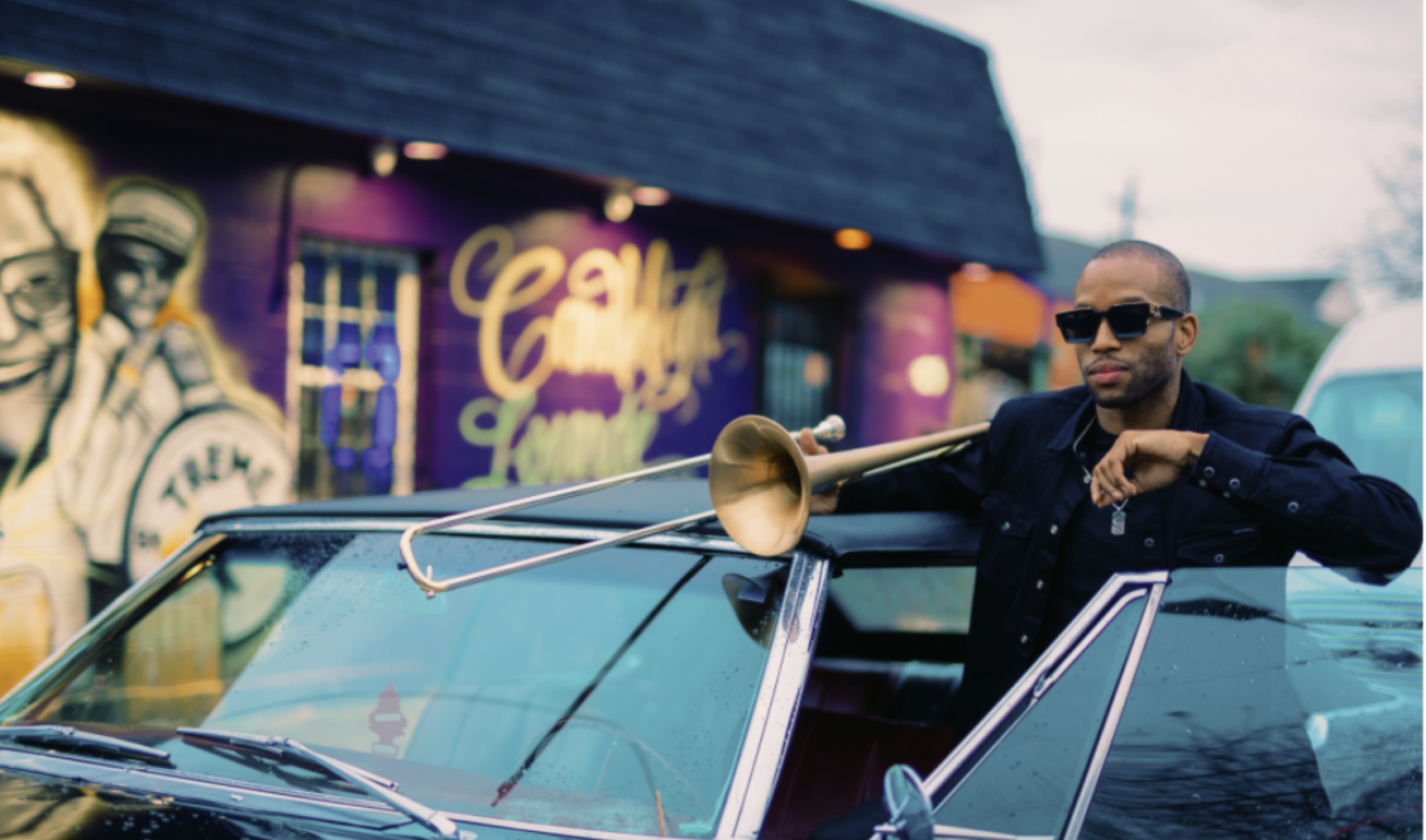Jazz Fest: Shorty Honors the Nevilles

Trombone Shorty concluded Jazz Fest 2018 with a tribute to the Neville Brothers, who held down his time slot for more than two decades.
Trombone Shorty’s fest-closing set deserves to be the ritual that the Neville Brothers’ set used to be. The shows have been impressive, funky, and a lot of fun as he worked to justify occupying the slot, and each one has shown meaningful growth. He concluded this year’s Jazz Fest by using his songs as starting points for more expansive musical experiences. Sunday, “Here Come the Girls” smartly flowed into a jam that assumed a few new shapes, one of which was “Apache.” Most importantly, the jams moved organically. Nothing felt forced, and it all remained very funky and very Shorty.
I found myself wondering what he has to do to get Neville Brothers-like love. Like the Brothers, he comes with a good family narrative, and he has deep New Orleans musical roots. He and Orleans Avenue are also funky in a post-Meters way that is in increasingly short supply. Only Shorty, Dumpstaphunk, and George Porter and His Runnin’ Pardners flew the flag for that era of New Orleans funk this Jazz Fest. I was thinking that he needs a signature, dramatic, sing-along song like “Fiyo on the Bayou” when Nevilles came out as if on cue. Cyril, Ian and Ivan joined Shorty for The Meters’ “No More Okey Doke” and “Fiyo on the Bayou.” The moment was clearly emotional, coming shortly after Charles Neville’s passing, but it didn’t feel like a detour. Shorty’s sets have been built to look backwards and forwards at the same time, so a moment to honor Charles, Art (who didn’t play this year—correct me if I’m wrong), and Aaron, who only played Friday on the Gentilly Stage, fit seamlessly into Shorty’s set.
It will be interesting to see if Cyril and a salute to the Nevilles will give him the rub to help old Neville Brothers fans make Shorty their end-of-Fest fix, or if the years of booking Shorty to follow obviously bigger acts like Neil Young, Arcade Fire, The Black Keys and Lenny Kravitz have conditioned festgoers to see that final time slot as the afterparty.
Shorty finished with “Lose My Mind,” which mirrors its title in its ecstatic rave-up, but the song doesn’t answer the question of how Shorty gets bigger and grows into the time slot as a business proposition. How does he become on par as a draw with the acts that play in front of him on the Acura Stage on the last Sunday of Jazz Fest? Shorty doesn’t need to be more over with 40, 50, and 60-year-olds; he needs more teenagers and twentysomethings to get on board—people who’ll make him their Neville Brothers. To reach them, he needs to work to get more electronic remixes of his material into the world—I’ve only found one—or rappers spitting on Shorty’s beats. He’s going to have more luck going where the audience he wants already is than he will if he tries to convince young people to come to music they think of as belonging to their parents. I love his commitment to rock as a measure of sonic density, and his doesn’t sound corny or dated, but it also doesn’t sound like the thing that will make his peers his audience.
Still, Sunday’s set was a strong set in a five-year run that more than validates the decision to make him the New Orleanian who closes out the Acura Stage.
Jack White preceded Shorty on Acura, but it wasn’t until he wrapped with “Seven Nation Army” that the crowd really jumped for him. The audience was respectful and interested, but White didn’t overload the set with hits, perhaps because he doesn’t have that many. Also, White is like the Marvel Cinematic Universe in that you have to know four projects—White solo, The White Stripes, The Dead Weather and The Raconteurs—to source the songs in his sets. Still, the show was White at his most affable, perhaps because he sensed that he didn’t own the crowd the way he did when he played Voodoo in 2012 and The Saenger in 2014. He was a rock star, but less defiantly so. White was in good spirits throughout the show, and he often stuck to his most direct material to let people in—the knotty “Ice Station Zebra” excepted. Still, the crowd wasn’t sleeping on White; he was just hard to follow. He covered a lot of musical ground, from blues to country to Zeppelin-like riff rock, but with no obvious build. White’s set didn’t tell a story as much as it dealt a deck of cards, so there was no clear movement from song to song, nor any momentum leading to “Seven Nation Army.”
I keep wanting the “E” in Terence Blanchard and the E-Collective to speak more clearly in his sound. Or, to signify a connection to electronic rather than electric music. His electric guitarist figures very prominently in his sound, and Blanchard manipulates his horn’s sound electronically, but his keyboard player played an electric piano and a grand piano. I think it’s in Blanchard to imagine a better integration of electronic music and jazz, but I do love his playing in this context. The E-Collective as a project seems to connect Blanchard to this decade, and I love the dark turbulence trying to find beauty that is coming out of his horn.






